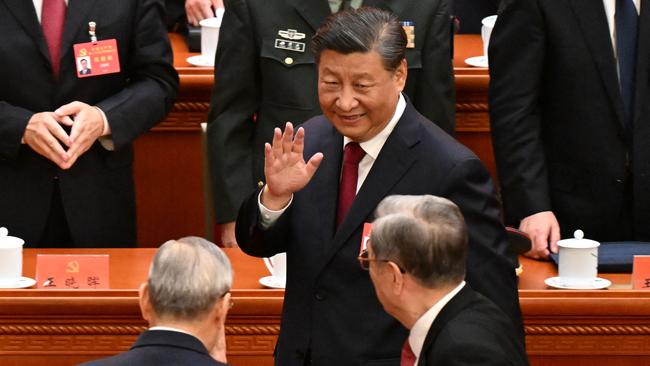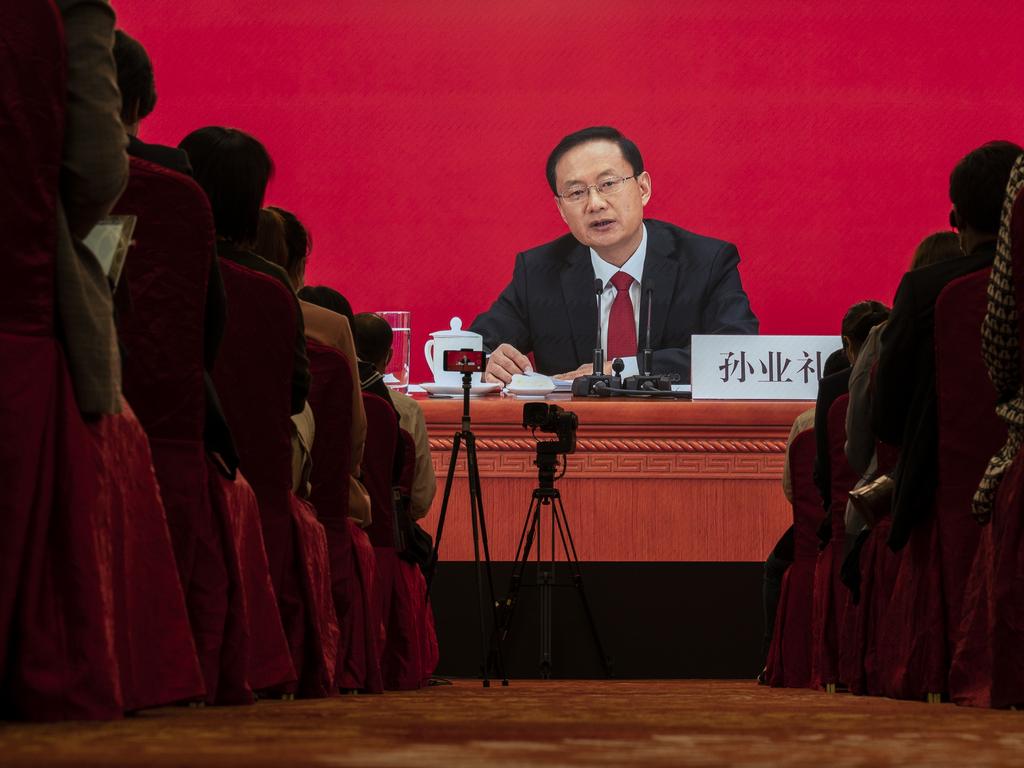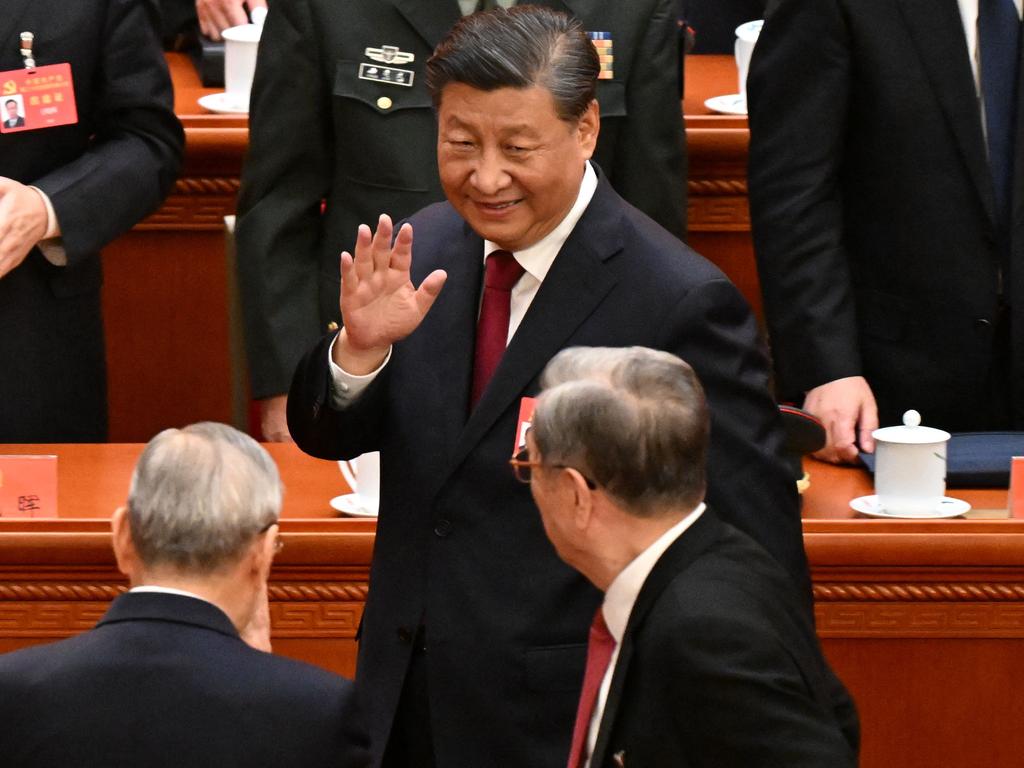Xi Jinping holds the hardline beneath boilerplate rhetoric
China’s leader does not talk or behave like Vladimir Putin or other dictators but he is just as ruthless as any of them.

Xi’s speeches are never short and pithy. We can be thankful that in this speech, Xi did not reach the more bellicose end of his leadership register. Yet buried among the soaring platitudes and boilerplate rhetoric, it was all pretty hardline.
It represented continuity on everything of importance.
Most notably, Xi is determined to continue his “zero-Covid” policies. The least ideological Chinese finds these policies constricting, frustrating and over the top.
The recent lockdown in Shanghai was more severe than other episodes. This Covid management demonstrates Xi’s stubbornness, the inflexibility of decision-making under his leadership and his determination to make reality bend to party policy rather than adapting policy to reality.
The zero Covid approach, even though there are now effective vaccines, hurts the Chinese economy and the people who have to live under it.
On other issues, Xi was steady as she goes.
The language on Taiwan was less confrontational than it sometimes is, but Xi was clear that he is not renouncing the use of force to compel Taiwan to become part of communist China. On Hong Kong, Xi hailed what in truth was a brutal suppression of democracy, which incidentally violated international treaties, as a great success, which had restored law and order to the territory.
Such a perfectly status quo kind of speech is reassuring at one level. Xi was not looking to pick a new fight with anyone in this speech.
Yet it doesn’t really give you any indication that there won’t be a more aggressive turn, or by contrast, and much less likely, a more accommodating turn, shortly down the track.
Thus Xi lavishly praised the central role of government in the economy, and also lavishly praised the central role of the market.
Even a stable continuity speech contains its enigmatic element when delivered by a one-man dictator at the top of a vast nation.
The central fact of this Communist Party congress is that it will inaugurate Xi’s third term in office as party general secretary, and therefore surely president as well, with the presidency to be confirmed early next year.
This smashes completely the timid but hopeful institutionalism that Deng Xiaoping built for the Chinese leadership and state to prevent a madman like Mao Zedong ever coming to power again.
Xi is no Mao, but he has concentrated more power in his own hands than any single Chinese leader since Mao.
Perhaps it was always to be expected that at the time of doing so, Xi would emphasise stability and continuity, two of the strongest arguments the Communist Party has for its rule.
Similarly, post-Mao Chinese leaders have a great disdain for personal flamboyance.
Xi does not talk or behave like Vladimir Putin, still less like any of the colourful one-man dictators who sadly abound in our time.
But he is just as ruthless as any of them.







If anyone had been hoping for a concession to the mood for democracy sweeping global opinion in reaction to Russia’s brutality in Ukraine, or a sign that Beijing might be rethinking the harshness of its Covid-19 policies, or its relentless military threat to its neighbours, or the comprehensive authoritarianism of its domestic rule, they would have been bitterly disappointed by President Xi Jinping’s near two-hour recitation of Chinese Communist Party orthodoxy.